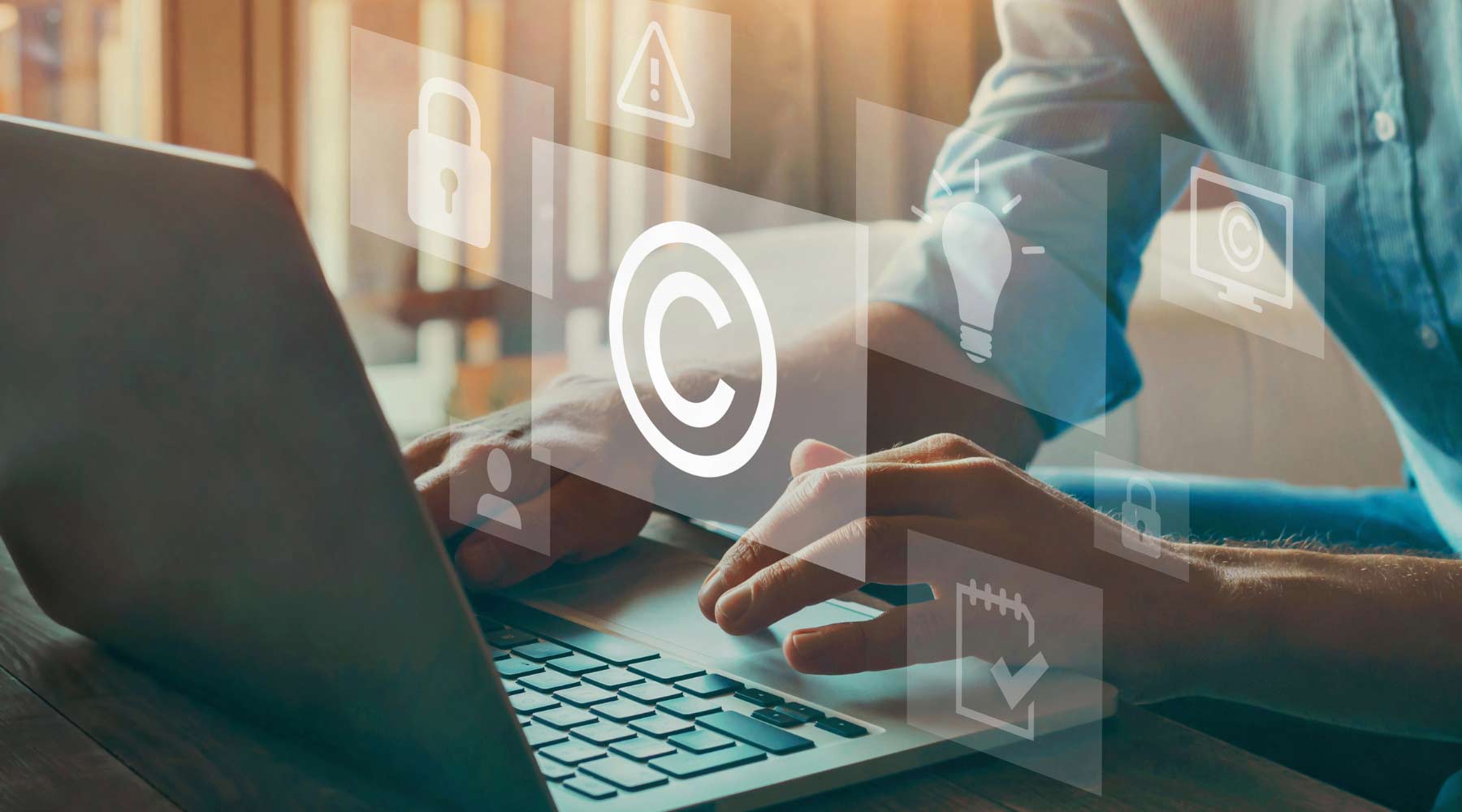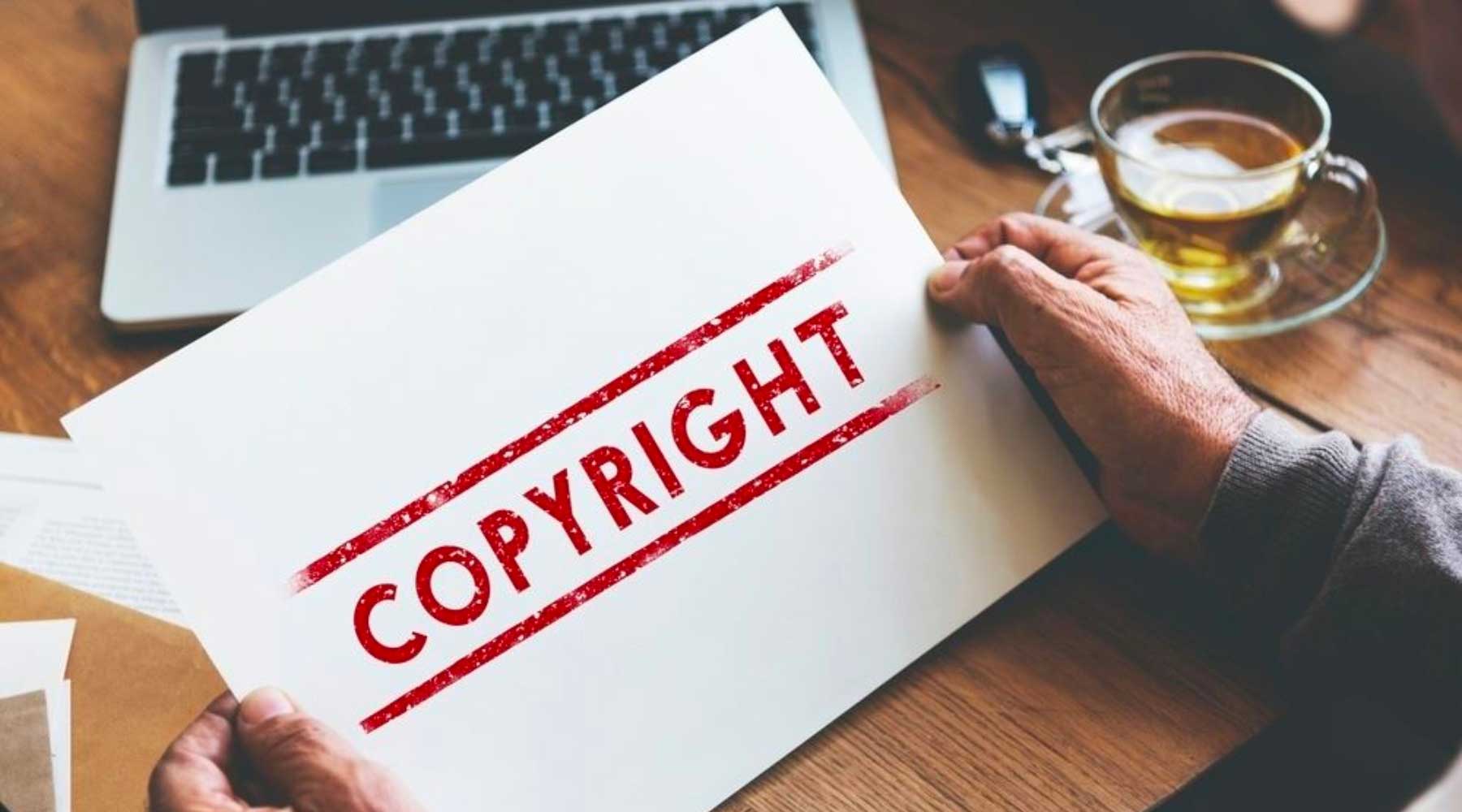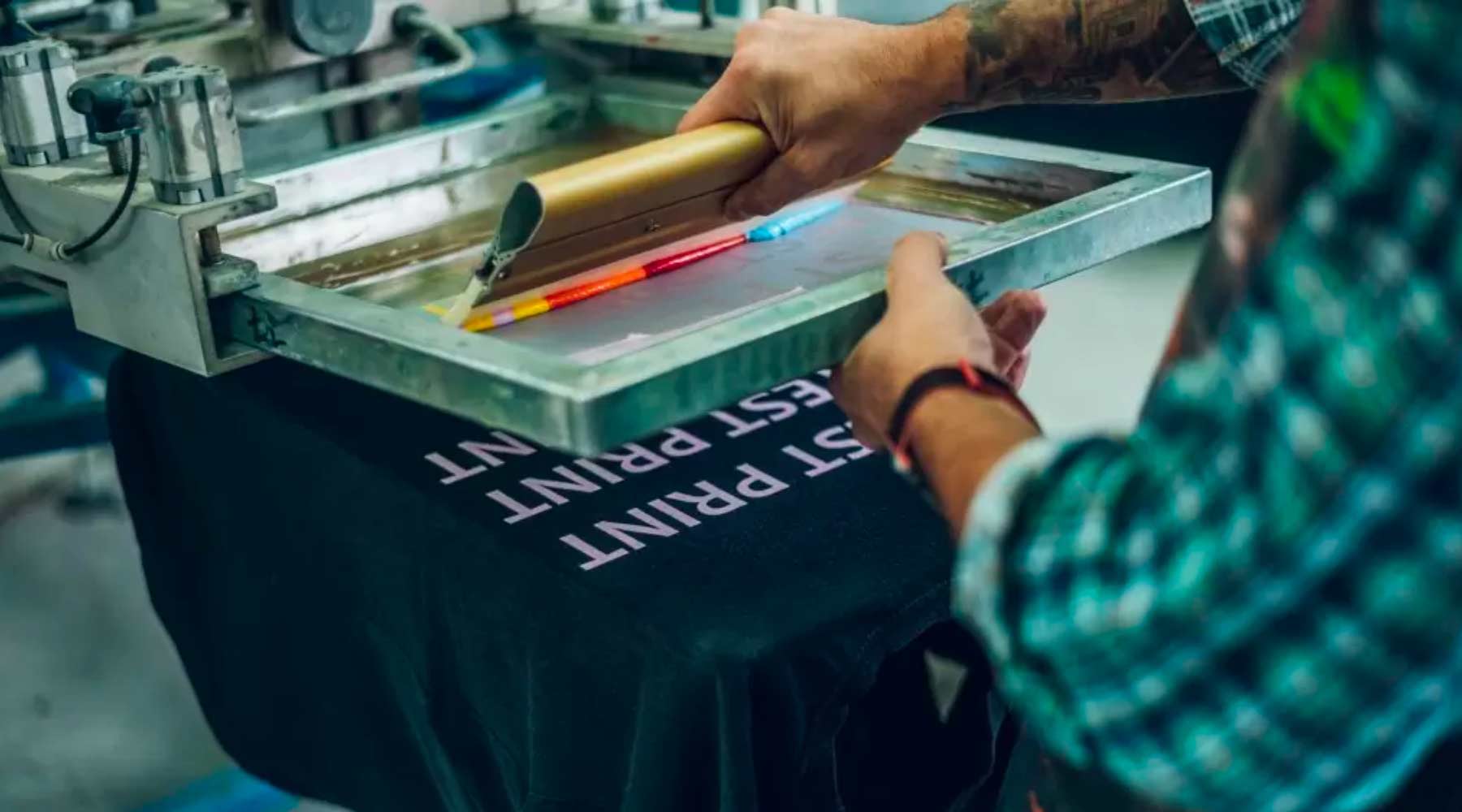Print-on-demand Copyright Rules & How to Avoid Infringement?
-
Table of contents

Understanding print-on-demand copyright is crucial for achieving sustainable development. Dive into this article with Teeinblue to have a deep, trustworthy, and easy-to-understand knowledge of copyright laws and helpful tips to avoid penalties when selling POD. Stay tuned until the end to find answers to common copyright-related questions. You're all set to start!
Print-on-demand Copyright Essentials
Print-on-demand copyright is a legal rule that safeguards authors’ rights to a copy of their work, which includes design, art, text, pictures, etc. The original author has the exclusive right to reproduce, distribute, and profit from their creation. It is important to firmly hold these rules before starting your print-on-demand business.
Keep in mind that copyright laws may vary by countries. Most rules and references in this article are in the United States.
Copyright Print-on-demand Terms
Let’s start with some basic terms for a better understanding of copyright in print-on-demand.
- Intellectual Property (IP): The ownership over the creation of minds, including visual, textual, and audio items, such as designs, symbols, names, images, songs, computer programs, organization practices, etc.
- Copyright: A law to protect creative works from copycatting or use without the author’s permission. The © symbol is frequently used to indicate copyright.
- Trademark: An iconic symbol, slogan, or name with ™ emblem that identifies a specific brand or product. Trademarks safeguard brand identities, while copyright is for protecting creative works.
- Copyright infringement: The action breaks the copyright rules by using, copying, or sharing someone else’s work without their permission.
- Public domain: Creative materials are not protected by intellectual property laws. You can use it freely to recreate and resell it without requiring permission or compensation.
- Fair use: A legal principle that permits limited use of copyrighted materials without having permission from the copyright holder.

Intellectual Property Law Protection for POD
Understanding intellectual property law is extremely important to help you avoid print-on-demand copyright infringement and legal consequences. Hold in hand 4 types of assets that most countries protect.
Patents
Patents protect new inventions and practical improvements of process, machine, article of manufacture, or composition of matter (USPTO). For example, if someone invents a unique printing technology for customized T-shirts, they can patent it to prevent others from using the same method.
Copyright
Copyright prohibits duplicating and unauthorized use of intellectual property to shield all the rights of original authors. An artist can copyright their unique digital artworks to ensure no one else can reproduce and sell them on print-on-demand products without their consent.
Trademarks
Trademark laws protect brand identities against other competitors in the market. Even if you’re willing to pay for trademark items, using them may risk you facing legal concerns and penalties. Inserting Adidas or Nike's brand names, logos, or slogans into print-on-demand products and selling them to your customers may cause trademark violations.
Trade Secrets
Trade secrets refer to special formulas, techniques, materials, or confidential information that provide competitive edges. An exclusive relationship with a third-party supplier is a trade secret as it offers business advantages of lower price and higher quality.
Are you curious about what happens if someone breaks copyright or trademark law? Copyright infringement can result in serious criminal repercussions. In the United States, penalties for copyright violations can include paying statutory damages with fines from $2,500 to $25,000. Additionally, individuals may face imprisonment for up to 10 years.

Copyright infringement can result in a fine or imprisonment
💡 You may concern: Generate Unique Print-on-demand Store Names to Avoid Infringement
Main Effects of Copyright on Print-on-demand
By safeguarding copyright, most best places to sell print-on-demand establish a trustworthy environment. Let’s explore some implications of print-on-demand for copyright:
- Ownership: Ownership entails the rights of authors to reproduce, distribute, and display their work. The author has full control over how their work is used and receives financial compensation for its use.
- Infringement: Print-on-demand effectively combats copyright infringement by verifying artwork from scratch. Creators also access robust tools to easily identify any potential infringements and take appropriate action.
- Licensing: Print-on-demand requires people to obtain permission or a license from the owner before using copyrighted materials. These licensing options help to protect authors' intellectual property while ensuring fair compensation for their creations.
- Piracy: Piracy refers to the unauthorized copying and distribution of copyrighted materials. By actively monitoring digital spaces, print-on-demand deters piracy and safeguards the artists' property rights.
- Distribution: With print-on-demand, creators will easily publish their work globally and reach diverse audiences. This leads to greater recognition and potential financial rewards.
Best Practices to Avoid Print-on-demand Copyright Infringement
Print-on-demand sellers should keep a “better safe than sorry” mindset to avoid unintentional copyright infringement. This helps you stay away from reputation damage or legal troubles.
Assume That All POD Pieces are Copyrighted
You might take precautions with online content to sidestep legal disputes or fines. If you cannot confirm that a work is in the public domain or has an explicit license, obtain permission from the copyright holder before using it for your print-on-demand products.
Here are two ways to check copyright issues for print-on-demand. Keep in mind that you can’t use phrases, words, or symbols that have “live” status on the list.
- Look up the trademark database at The United States Patent and Trademark Office (USPTO).
- Verify copyrighted title, name, or keyword at The United States Copyright Office.

Ask for Acceptance Before Utilizing Other Works
Identify the work's author and seek their permission to comply with copyright laws. To avoid copyright infringement with images on your print-on-demand products, either create your images or utilize public domain sources. If you prefer using copyrighted images, contact the artist or photographer to obtain their license with proper credit.
Maintain License and Selling Contracts
Establishing a solid legal framework is crucial for minimizing misunderstandings and preventing potential disputes. It is particularly essential if you have obtained creative work permissions without charges. A comprehensive contract should clearly outline specific terms, usage conditions, payment terms, and the duration of agreements.

Utilize Materials in Public Domains
Public domain is a wise choice to print your print-on-demand products without copyright restrictions. You can freely reuse, modify, and resell items from public domains. This approach not only helps you avoid legal troubles, save time and money but also enables you to create captivating products. Some common public domain websites are Unsplash, Pexels, Wikimedia Commons, Pixabay, etc.
Establish a Store Policy for Intellectual Property (IP)
An IP policy provides clear guidance for your store. It helps both you and your customers grasp your position on copyright and intellectual property. Clearly explain how you acquire copyrighted materials and address copyright disputes. Don’t forget to make this policy easily accessible on your website to ensure customers know about it.
Consult Advice From a Copyright Expert
Copyright expert or attorney updates the latest information on copyright laws and helpful advice to avoid copyright infringement. For instance, some people may be uncertain about whether they can print copyrighted material for personal use.
Legal counsel can clarify that printing or posting copyrighted content without permission is a copyright violation. You may face legal repercussions, including being sued, fined, or compensation claims by the copyright holder.

Frequently Asked Questions: Print-on-demand Copyright Issues
Let’s go through some frequent queries about print-on-demand copyright issues.
How Can You Find a Copyright Owner?
To identify the copyright owner, start by examining the copyrighted work itself. Look for information such as the author's name, signature, or watermarks on the artwork. Additionally, you can explore copyright databases in your country, such as the United States Patent and Trademark Office (USPTO).
Notes: Even if you have no idea about the author, however, you should never assume that the material is fair use to avoid potential copyright violations.
How Do You Avoid Copyright Infringement While Selling T-shirts?
Print-on-demand sellers should exercise caution when using online designs. Unless you create original designs or utilize public domain materials, seek the original author and obtain a licensing agreement before use.
A popular question is, Can you print famous quotations on T-shirts? Generally, you can't use copyrighted quotes, as this is copyright infringement. Some quotes from novels, songs, films, TV shows, or speeches may also be trademarked.
However, you can print famous quotes if they are very general and not attributed to a specific person. Public domain or fair use quotes are also acceptable, but it's wise to consult a professional for guidance on avoiding copyright issues.

How Much Time Does Print Copyright Last?
In the United States, the duration of copyright relies on a lot of factors. Here are the specifics:
- On or after January 1, 1978: In general, it’s 70 years after the author's lifetime. Anonymous, pseudonymous, or work-for-hire creations, it’s 95 years from the first publication year or 120 years from the creation year, whichever come first.
- Before January 1, 1978: 28-95 years, based on the work's creation and publication or registration dates, whether it was renewed, restored, and the authorship’s nature and nationality.
Besides, a federal trademark remains valid for 10 years starting from the registration date. You can renew it for an unlimited number of 10-year periods (USPTO). For a trade secret, it can stay protected indefinitely as long as it's commercially valuable is valid. As an owner, you are responsible for keeping it a secret.
How Do You Secure Your Print-on-demand Copyright?
As a print-on-demand seller, you have the right to protect the creative work you make. Hold in hands 5 ways to secure your print-on-demand copyright and prevent unauthorized use:
- Register your work with the copyright office to establish ownership.
- Use watermarks or digital rights management to protect against piracy.
- Monitor for violations by online tools to detect infringements.
- Build copyright and license policy in your work to clarify usage rules.
- Choose reliable print-on-demand suppliers with clear copyright policies.
In conclusion, a solid grasp of print-on-demand copyright is fundamental for success in the industry. Hope this article offered you valuable insights to protect your creative work, prevent infringement, and confidently navigate the print-on-demand world. Adhering to print-on-demand copyright safeguards your business and promotes a positive community.
RELEVANT ARTICLES
Print-on-demand Explained: Definition, Products, Process
An Easy-to-practice Start Guideline for Print-on-demand
The Master's Guide on How to Create Print-on-demand Designs
Discover Success Secrets of 10 Print-on-demand Store Examples
Best Practices to Earn Print-on-demand Passive Income: Gurus' Tips
Newsletters
Subscribe to get exclusive POD tips, trends, and insights!
Tags:
print on demand
